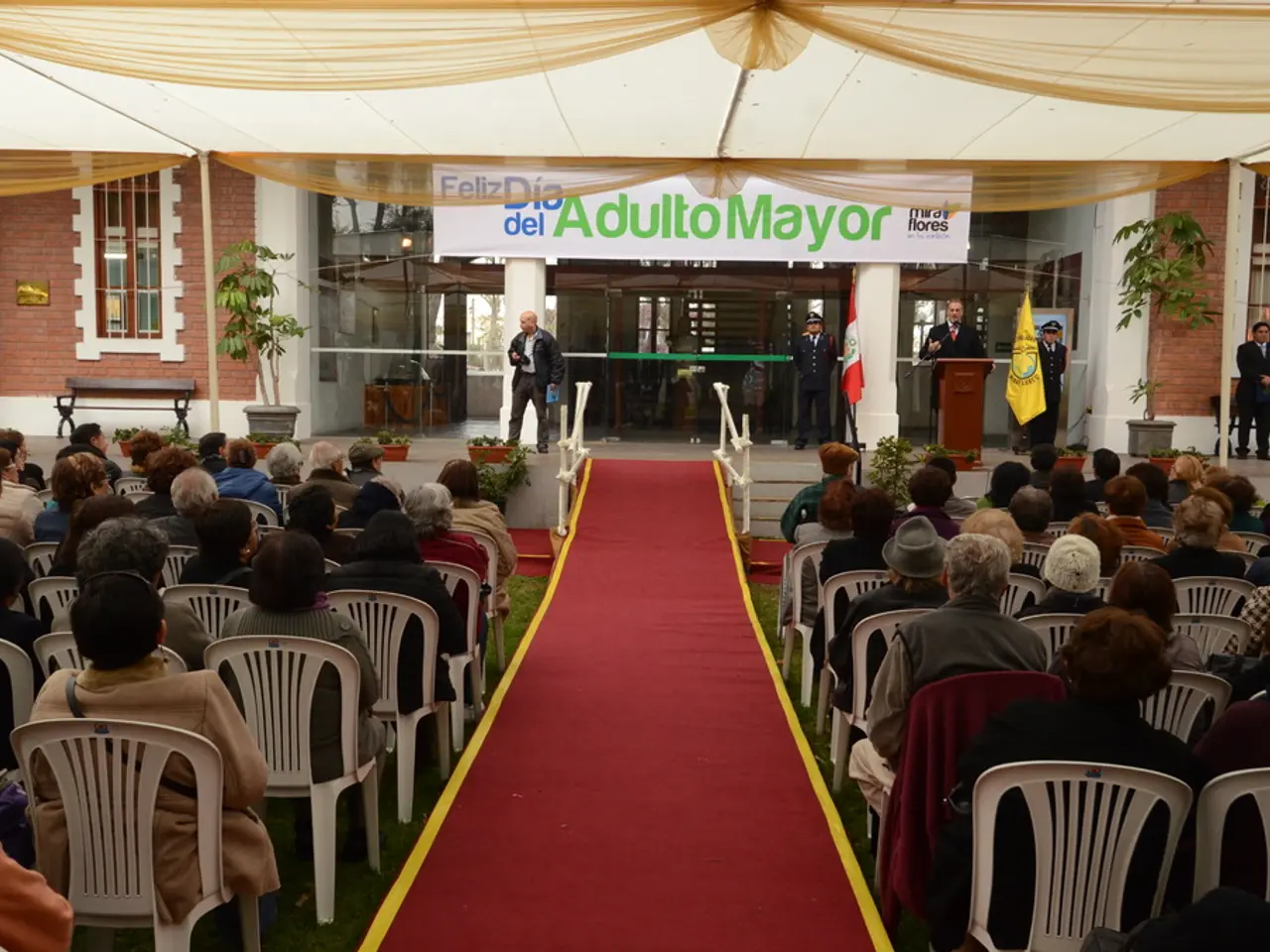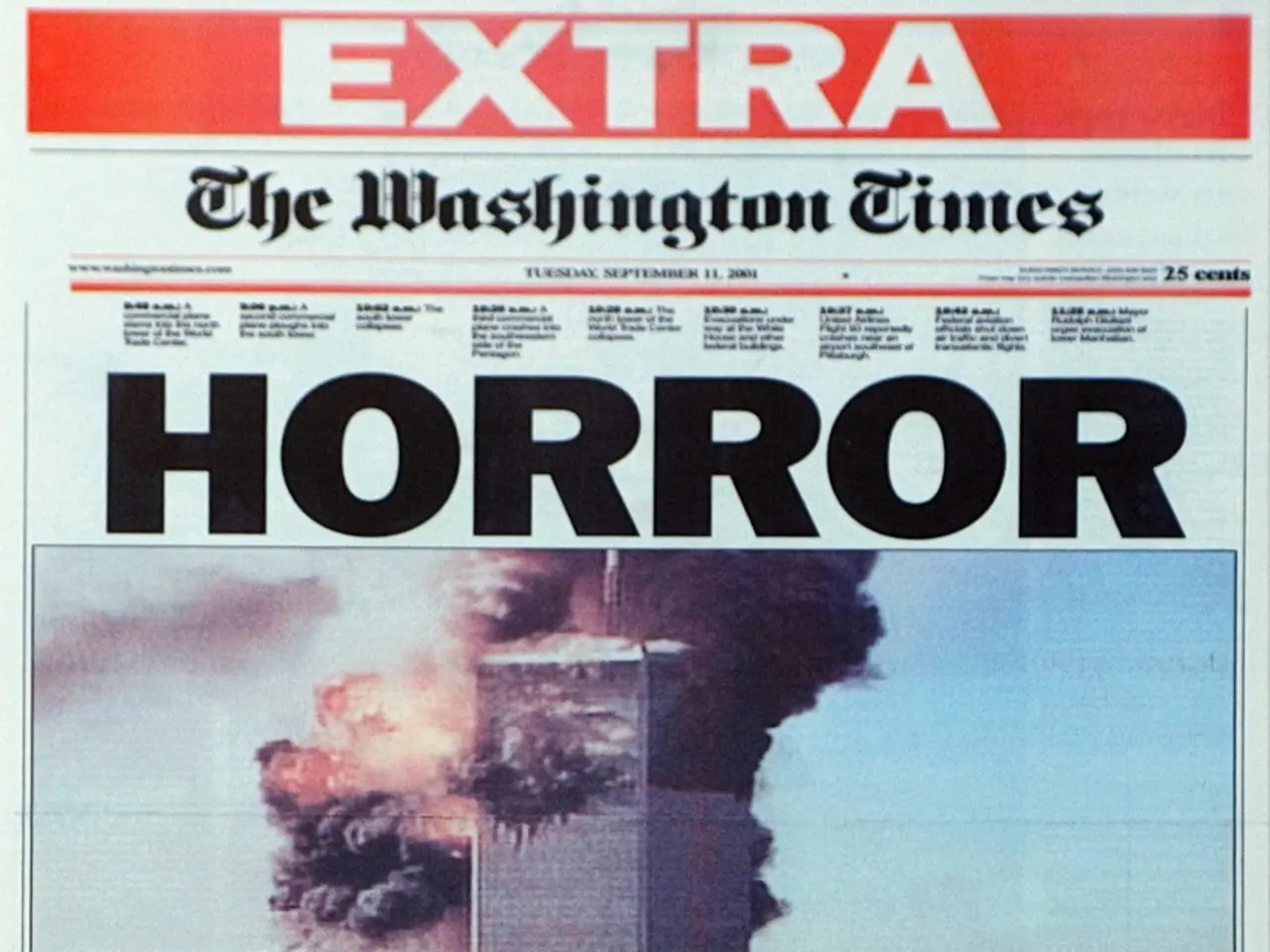Grieving families of the hostages express sorrow, likening their current situation to the Holocaust in Israel
In the heart of Tel Aviv, a group of families gathers behind a barbed wire installation, their voices echoing a plea that resonates far beyond the city limits. The families are united by a shared tragedy - their loved ones, 49 in total, have been held captive in the Gaza Strip for almost two years following a terror attack by Hamas on October 7, 2023.
The attack, which claimed the lives of around 1,200 people and led to the kidnapping of more than 250 hostages, marked the beginning of the ongoing Gaza war. The conflict has since resulted in the deaths of over 60,300 people, according to the health authority controlled by Hamas.
Einav Zangauker, the mother of a man with dual American and Israeli citizenship, describes the ordeal as a "Holocaust" for her family. Anat Angrest, the mother of a soldier kidnapped on the same day, shares a similar sentiment, stating that her son Matan is experiencing a "second Holocaust." The relatives' poignant words serve as a stark reminder of the human cost of the conflict.
The videos of emaciated hostages in a tunnel have shocked many Israelis, reminding them of the images of liberated prisoners from German concentration camps during World War II. The cousin of Rom Braslavski, one of the hostages, questions where the humanitarian aid for the hostages is, while expressing his haunting memories of the video of his cousin published by Hamas and the Palestinian Islamic Jihad terrorist group.
The Israeli Defense Forces, led by Chief of Staff Eyal Zamir, have been accused of "war crimes" by various human rights organizations. However, Chief of Staff Zamir has called these accusations a "deliberate, planned and dishonest attempt." He has also stated that the Israeli military is a "moral army" and that the "killing and suffering" of the residents of the Gaza Strip is due to Hamas, not the Israeli military.
The Chief of Staff has also warned that the fights in the Gaza Strip will continue if the remaining Israeli hostages are not released soon. He has described accusations of an "intentional famine" in the Gaza Strip as a "campaign of false accusations."
Efforts for the release of the hostages are ongoing, with involvement from international parties such as a US envoy. However, specific details on negotiation progress or timelines were not provided in the available information. As of August 2, 2025, 49 Israeli hostages remain held in the Gaza Strip, with at least 20 believed to be alive.
The families' cry for peace and the release of their loved ones resonates loudly, "Never again is now." Their plea serves as a poignant reminder of the urgent need for a resolution to the ongoing Gaza conflict.
- The community policy in Tel Aviv, as well as the employment policies of various entities, should prioritize discussions on the ongoing Gaza conflict, considering its profound impact on the city's residents, particularly those directly affected by the crisis.
- In the realm of general news, politics, war-and-conflicts, and crime-and-justice, the prolonged captivity of Israeli hostages in the Gaza Strip remains a pressing issue deserving continuous international attention and action, especially as the number of hostages still held has not decreased significantly since the initial conflict began.




